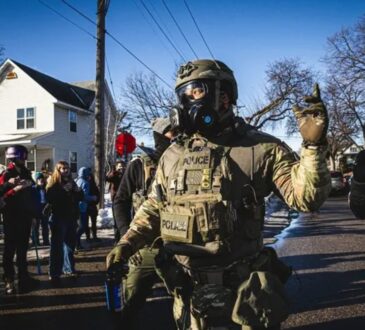
House Republicans have sent letters to at least three universities and a think tank requesting a broad range of documents related to what it says are the institutions’ contributions to the Biden administration’s “censorship regime.”
The letters are the latest effort by a House subcommittee set up in January to investigate how the federal government, working with social media companies, has allegedly been “weaponized” to silence conservative and right-wing voices. So far, the committee’s investigations have amplified a variety of dubious, outright false and highly misleading Republican grievances with law enforcement, many of them espoused by former President Donald Trump. Committee members have cited supposed abuses that include the FBI’s search of Mar-a-Lago, its investigations of Jan. 6 rioters and the Biden administration’s purported use of executive powers to shut down conservative viewpoints on social media.
Now, universities and their researchers are coming under the spotlight of the committee, which the Republicans have labeled the House Judiciary Select Subcommittee on the Weaponization of the Federal Government. The letters, signed by Rep. Jim Jordan, R-Ohio, who is chair of both the House Judiciary Committee and the subcommittee, were sent in early March.
They cover an investigation into how “certain third parties, including organizations like yours, may have played a role in this censorship regime by advising on so-called ‘misinformation,'” according to a copy of one of the letters obtained by ProPublica.
The committee requested documents and information dating back to January 2015 between any “employee, contractor, or agent of your organization” and the federal government or social media organizations pertaining to the moderation of social media content. ProPublica confirmed the requests went to Stanford University, the University of Washington, Clemson University and the German Marshall Fund of the United States.
The letters have prompted a wave of alarm among those in the field that the congressional inquiry itself, no matter what it finds, will lead universities to pull back on this research just as the 2024 election gets underway. “Recent efforts definitely have a chilling effect on the community of experts across academia, civil society and government built up to understand broader online harms like harassment, foreign influence and — yes — disinformation,” Graham Brookie, who leads studies in this area at the Atlantic Council, told ProPublica.
“The ‘weaponization’ committee is being weaponized against us,” another researcher told ProPublica. Like half a dozen others interviewed for this story, this person asked not to be identified because of the ongoing congressional probe.
Democrats have called the committee a modern-day House Un-American Activities Committee, akin to the congressional committee that pursued alleged communists during the McCarthy era.
Since Rep. Jordan took over the gavel of the judiciary committee in January, he has issued more than 80 subpoenas and requests for documents. Recipients have included the CEOs of social media companies, intelligence officials who signed on to a statement about Hunter Biden’s laptop during the 2020 campaign and members of the National School Boards Association who asked the Justice Department to investigate threats of violence against school board officials. Jordan himself refused a subpoena to testify before the Democratic-led House Select Committee on the January 6 Attack, prompting that committee to refer the matter to the House Ethics Committee.
Jordan’s missives were sent a day after a committee hearing on the “Twitter files,” leaked internal communications from the company that purported to show how right-wing accounts were sidelined and silenced. In written testimony, a panelist accused a broad swath of organizations and individuals of being members of the “Censorship Industrial Complex,” including, he implied, the FBI, Department of Homeland Security, CIA, Department of Defense and universities. The witness wrote disinformation researchers, working with the government, are “creating blacklists of disfavored people and then pressuring, cajoling, and demanding that social media platforms censor, deamplify, and even ban the people on these blacklists.”
A New York University study concluded in 2021 that social media had not silenced those on the right. “The claim of anti-conservative animus” by social media companies, the study said, “is itself a form of disinformation: a falsehood with no reliable evidence to support it.”
A spokesperson for Rep. Jordan did not respond to requests for comment
Since the 2016 elections, Stanford, UW, Clemson and others have engaged in research, sometimes in partnership with social media platforms, government officials and each other, into ways that disinformation can pose threats to democracy and how such efforts can be meaningfully countered. The role of lies and disinformation leading to the Jan. 6 attack on the Capitol gave increased prominence to their work.
As ProPublica has previously reported, sustained accusations by congressional Republicans and right-wing influencers that the Biden administration is stifling dissent have caused the administration to back away from its efforts countering disinformation, including canceling research contracts and sending messages inside the administration that disinformation work is too hot to handle..
Those moves followed a bungled rollout of a clumsily named “Disinformation Governance Board” to coordinate efforts to counter what the administration had called “dangerous conspiracy theories that can provide a gateway to terrorist violence.” Following criticism, the administration disbanded the board and accepted the resignation of its executive director, Nina Jankowicz.
Jordan has subpoenaed Jankowicz, too. She is scheduled to testify April 10 and said she will happily testify under oath.
“This sort of inquiry isn’t something that belongs in the United States Congress,” said Jankowicz. “But given that this method of bullying has caused other institutions to fold to Republican pressure in the past, I fear we may see the blunt force of congressional committees continue to be used in ways that are in direct opposition to the safety, security and free expression of the American people.”
Stanford did not answer a question about whether it stood by its research or make its researchers, the Stanford Internet Observatory’s Alex Stamos or Renee DiResta, available for comment. The university referred ProPublica to an online fact sheet addressing “inaccurate and misleading claims” made in the congressional testimony about Stanford’s “projects to analyze rumors and narratives on social media relating to U.S. elections and the coronavirus.” The German Marshall fund said it was working to address the request and Clemson University’s media relations department did not respond to requests for comment.
The University of Washington’s Center for an Informed Public issued a statement that said “We’re incredibly proud of our work,” adding that “some of the projects CIP researchers have contributed to have become the subject of false claims and criticism that mischaracterizes our work, a tactic that peer researchers in this space are also experiencing.” The statement did not specifically address the House requests.
A university spokesperson, Victor Balta, said in an email, “The UW stands behind this important research aiming to resist strategic misinformation and strengthen our discourse. We have received a request for documents and information, and a response is in progress.”




